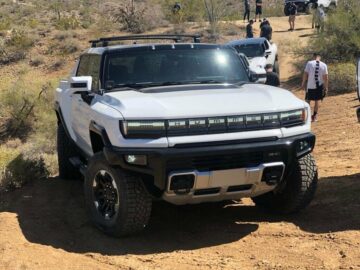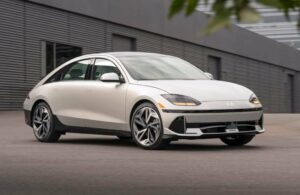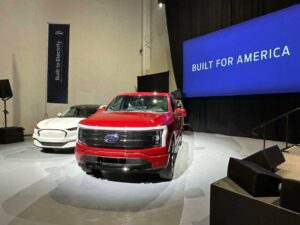
Message to Tesla owners: stop whining.
Customers are angry about Tesla Inc.’s significant price reductions across its U.S. portfolio this month, many of whom spent thousands more for their vehicles only weeks earlier.
It’s an unsettling reminder to those who thought that Tesla was somehow different from legacy automotive buyers that it’s no different from the free market forces that led Chevrolet, Ford and Nissan to reduce the price of their electric vehicles. Indeed, Tesla is really just another a car manufacturer producing a consumable consumer product that depreciates over time, just like any other car, truck or van.
And as any experienced automaker or retailer can tell you, dropping prices stokes consumer demand — just ask a TJ Maxx shopper.
Musk said last week that demand has surged as the price cuts made some models qualify for the revised federal electric-vehicle tax credit. And unlike other automakers, Tesla has room to reduce prices to maintain market share thanks to its gross profit margins, which hover around 25%. The majority of mainstream automakers operate with a margin like GM, which has a net margin between 6%-7 percent.
Declining demand
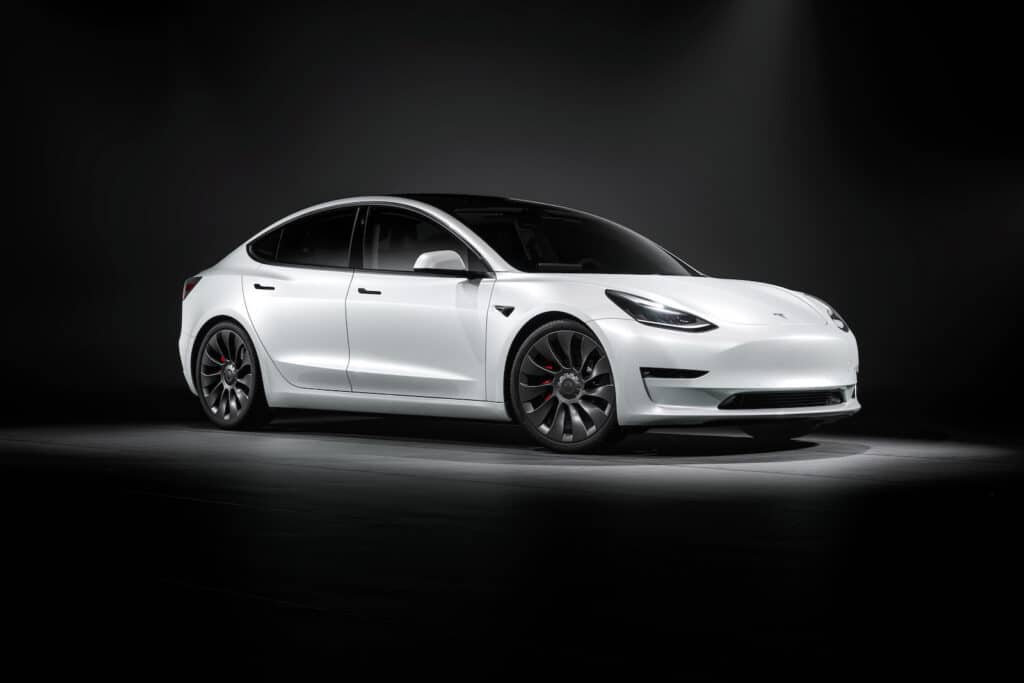
Tesla accounted for 65% of EV sales in the U.S. market last year, down from its 2021 share of 72%, and proof that EV newcomers are having an impact. With inventory growing, the carmaker offered $7,500 incentives to Model 3 sedan and Model Y SUV purchasers in a move to lower inventory late last year. The firm then sweetened its offer by giving buyers of any Tesla delivered in the final three days of 2022 three months of the Full Self-Driving option for free.
Next, in the new year, Tesla made further price cuts, reducing the Model Y’s price in the United States to $52,990, a reduction of about 20%, and the Model 3’s price was dropped to $53,990, a 14% discount.
Unhappy customers
Regardless of what recent Tesla buyers think of their new vehicle, they are dissatisfied, as many feel cheated that they paid too much. They seem to have forgotten one of the key consumer principles, caveat emptor — Latin for “let the buyer beware.” Despite having paid what they obviously thought was a fair price at the time, a petition was started by the owner of a YouTube channel devoted to Teslas, requesting free or discounted software downloads for Tesla owners who bought their vehicles just prior to the price cuts.

And it’s not as if Tesla owners are exactly poverty stricken, having a median income of $85,000, placing them in the top 23% of taxpayers. That compares with a median income of $62,000 for non-Tesla buyers, placing them in top 36% of households.
Owners are also upset their now used cars aren’t appreciating. In fact, prices of used Teslas have declined some 25% in the past six months, just like the used cars that they are, a reminder that Teslas aren’t collector items, but a consumer product.
The U.S. price cuts follow similar discounts in China late last year in the face of an EV price war by EV manufacturers. There, the Model 3 saw its price drop to 265,900 yuan ($36,610) from 279,900 yuan ($38,538), while that for the Model Y sport utility vehicle was reduced to 288,900 yuan ($39,777) from 316,900 yuan ($43,632). The moves came as China EV manufacturers sparked a price war in their own market. In response, hundreds of Tesla buyers stormed the automaker’s retailers having missed out on savings of as much as 25 percent.
A different attitude
While Tesla owners seem to think they are somehow entitled to immunity from automotive market forces, the same isn’t true of other automotive consumers who have bought vehicles only to see prices fall shortly thereafter.
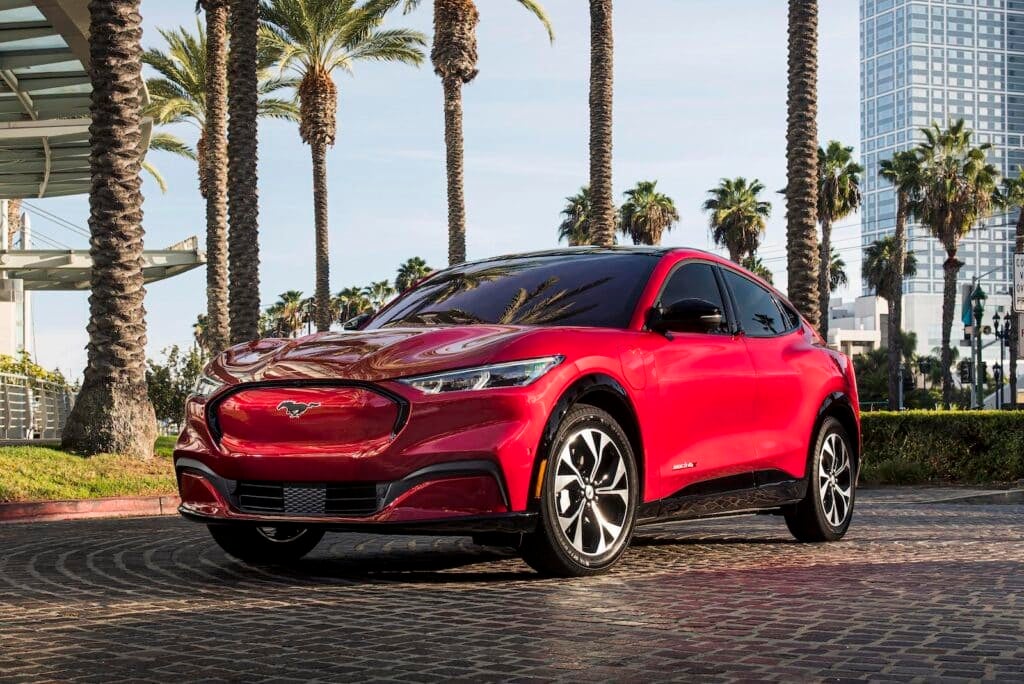
Ford announced Monday that it is dropping the price of its Mustang Mach-E battery-electric vehicle anywhere from $600 to as much as $5,900, depending upon model. Similarly, last summer, Chevrolet lowered prices for the 2023 Bolt and Bolt EUV by as much as 18 percent. The 2023 Bolt starts at $25,600, the Bolt EUV $27,200, not including a $995 delivery fee, sales tax or options. Or consider the 2022 Nissan Leaf, the price of which fell to $28,375, $4,245 lower than in 2021. (That said, its 2023 MSRP increases $520 to $28,895.)
Consumer outrage? None. Much like Tesla’s entire line-up, the Mach-E, Bolt and Leaf are aging models that have seen price cuts in the wake of newer competitors. To stoke demand, prices were cut; it’s Economics 101.
But Ford’s price cut indicates that as the market expands, affordability and access to federal tax credits will become more important than ever, signaling the salad days of the EV market, and anything goes pricing, may be ending. The same could be said for all car prices.
“New-vehicle inventory climbed through December, nearing what used to be considered ‘normal’ levels in the pre-pandemic era,” said Charlie Chesbrough, Cox Automotive senior economist. “Days of supply at the end of December increased due to production and supply improvements. But sales barely budged.”
That suggests incentives may be returning as the year progresses. Tesla owners, get over it.
- SEO Powered Content & PR Distribution. Get Amplified Today.
- Platoblockchain. Web3 Metaverse Intelligence. Knowledge Amplified. Access Here.
- Source: https://www.thedetroitbureau.com/2023/01/tesla-owners-stung-by-capitalism/
- 000
- 2021
- 2022
- 2023
- a
- About
- access
- across
- After
- Aging
- All
- and
- announced
- Another
- anywhere
- appreciating
- around
- automakers
- automotive
- become
- between
- Beware
- Bolt
- bought
- buyers
- capitalism
- car
- cars
- caused
- Channel
- Charlie
- Chevrolet
- China
- Climbed
- collector
- competition
- competitors
- Consider
- considered
- consumer
- Consumers
- could
- Credits
- Cut
- cuts
- Days
- December
- delivered
- delivery
- Demand
- Depending
- Despite
- different
- Discount
- discounts
- Dont
- down
- downloads
- Drop
- dropped
- Dropping
- Earlier
- Economics
- Economist
- Electric
- electric vehicles
- Entire
- Era
- EV
- EVER
- exactly
- expands
- experienced
- Face
- fair
- Fall
- Falling
- Federal
- fee
- final
- Firm
- Forces
- Ford
- forgotten
- Free
- from
- full
- further
- get
- Giving
- GM
- Goes
- gross
- Growing
- having
- households
- hover
- HTTPS
- Hundreds
- immunity
- Impact
- important
- improvements
- in
- Incentives
- Including
- Income
- increased
- Increases
- increasing
- indicates
- inventory
- IT
- items
- Key
- Last
- Last Year
- Late
- Latin
- Led
- Legacy
- levels
- made
- Mainstream
- maintain
- Majority
- Manufacturer
- Manufacturers
- many
- Margin
- margins
- Market
- market forces
- max-width
- model
- models
- Monday
- Month
- months
- more
- move
- moves
- nearly
- net
- New
- new year
- Nissan
- offer
- offered
- ONE
- operate
- Options
- Other
- own
- owner
- owners
- paid
- past
- percent
- placing
- plato
- Plato Data Intelligence
- PlatoData
- portfolio
- Poverty
- price
- Prices
- pricing
- principles
- Prior
- Product
- Production
- Profit
- proof
- qualify
- recent
- recently
- reduce
- Reduced
- reducing
- response
- retailer
- retailers
- returning
- Room
- Said
- sales
- same
- Savings
- self-driving
- senior
- Share
- Shortly
- significant
- Similarly
- SIX
- Six months
- Software
- some
- spent
- Sport
- started
- starts
- States
- Stop
- Suggests
- summer
- supply
- Surged
- tax
- taxpayers
- Tesla
- Tesla Inc
- Teslas
- The
- their
- thought
- thousands
- three
- Through
- time
- to
- too
- top
- truck
- true
- u.s.
- United
- United States
- Used Cars
- utility
- vehicle
- Vehicles
- Wake
- war
- week
- Weeks
- What
- which
- while
- WHO
- will
- year
- youtube
- Yuan
- zephyrnet


